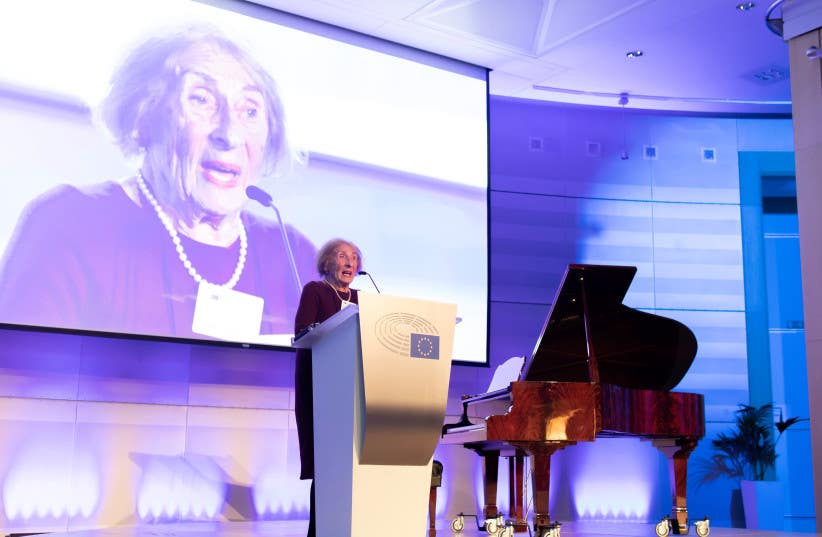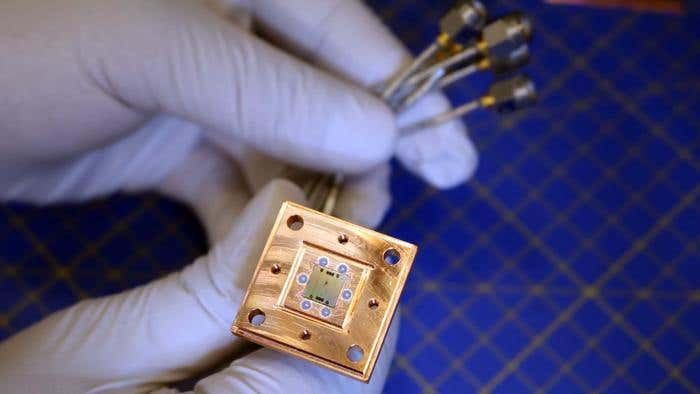New play explores kindness found amid devastation of Holocaust
Based on the testimony of 91-year-old Holocaust survivor Susan Pollack MBE, a groundbreaking Holocaust play will be released in September.

[August 26, 2021: The Brighter Side of News]
Based on the testimony of 91-year-old Hungarian-British Holocaust survivor Susan Pollack MBE, Salamander Street Publishing announced a verbatim Holocaust play, Kindness: A Legacy of the Holocaust.
It is adapted by Cate Hollis, Artistic Director of Voices of the Holocaust (Holocaust theatre and education through drama) and Mark Wheeller (the most performed UK living playwright and GCSE Drama staple).
Kindness offers a tremendous challenge to Drama students. It allows the stories of survivors, as well as the voices of some of the millions more who did not survive, to not be lost as living memory increasingly becomes becomes a history that must never be forgotten.
“I sincerely felt very moved and grateful that the play so accurately represented my experiences, and the mood and political situation of the time is so accurately shown. It is most wonderful and I give you my legacy most willingly. Thank you so much.” Pollack writes.
Pollack lost over fifty relatives in the Holocaust. She was born in 1930 in Felsőgöd, Hungary, and in 1944 was sent to Auschwitz-Birkenau. She regularly shares her testimony in schools across the UK. At the age of 91, she has decided to retire and trusts that Kindness will be her legacy.
Susan Pollack's backstory
Susan was born Zsuzsanna Blau on 9th September 1930 in Felsögöd, Hungary. She had one brother, Laci, and lived with her mother and father. She also had a large extended family who she regularly spent time with.
Susan became aware of antisemitism in her hometown from a young age. In 1938, her uncle was murdered by Fascists. His attacker was sentenced to just two years imprisonment, and served much less time than that. The attacker then returned to live opposite Susan’s widowed aunt. From 1938, Susan’s brother Laci was also affected by antisemitic laws. He had hoped to go and study at university, but a law restricted the number of Jewish students who could enter higher education. In most universities the limit was set at just 2% intake of Jewish students.
Following the outbreak of the Second World War, antisemitism in Susan’s home town became more visible, with anti-Jewish graffiti appearing on the streets and antisemitic propaganda being broadcast on the radio. Physical attacks on Jews also became more common, and Laci was badly beaten at a Boy Scout meeting. The situtation deteriorated further following the German invasion of Hungary in March 1944. Jews had to wear a yellow Star of David to identify them. Eventually a letter was issued by the council for all Jewish fathers to attend a meeting to discuss the welfare of their families. Susan’s father was among those men who went to the meeting, but when they arrived they were herded into waiting lorries and taken to a concentration camp. Susan never saw her father again and still is not sure whether he died in the camp or was deported elsewhere.
Under the supervision of SS officer Adolf Eichmann, the Nazis and their Hungarian collaborators organised the deportation of Hungarian Jews: within less than two months from mid-May 1944, almost all Jews were deported, mostly to Auschwitz-Birkenau. When Susan and her family were ordered to leave their home, they still hoped that they would be allowed to resettle elsewhere. Susan took a portable sewing machine with her. Susan, Laci and their mother were all sent to a ghetto in Vác and from there to an internment camp. In late May 1944, Susan and her family were sent by cattle truck to Auschwitz-Birkenau.
Men and women were separated immediately, and Susan was also then separated from her mother who was sent to join a group of elderly prisoners. She soon learned that her mother had been sent directly to the gas chambers. Susan was selected to work, and remained in the camp for around 10 weeks before being sent to Guben in Germany to work as a slave labourer in an armaments factory. With the Allies advancing, the prisoners were forced on a death march to Bergen-Belsen. On 15th April 1945 Susan was liberated by the British army. After she was hospitalised for tuberculosis, typhoid and severe malnutrition, she was sent to Sweden to recover.
After liberation, Susan found that Laci was the only member of her family to have survived: more than 50 of Susan’s relatives had been killed during the Holocaust. Laci continued to live in their parents’ house, although Susan wasn’t able to return to Hungary to visit him for 20 years after the end of the war. During his time at Auschwitz-Birkenau he had been forced to work in the Sonderkommando, moving bodies from the gas chamber to the ovens. He suffered with mental health problems caused by this experience until his death in 1995. After the war, Susan lived in Sweden before moving to Canada, where she met and married a fellow survivor.
Susan has three children and six grandchildren. She now lives in London and regularly shares her testimony in schools across the country.
Kindness will be published in paperback and eBook on September 9 2021, on Pollack's 91st birthday.
For more good news stories check out our Good News section at The Brighter Side of News.
Like these kind of feel good stories? Get the Brighter Side of News' newsletter.
Tags: #Global_Good_News, #Holocaust, #Kindness, #WWII, #Compassion, #Survival, #Play, #Book, #The_Brighter_Side_of_News
Joseph Shavit
Head Science News Writer | Communicating Innovation & Discovery
Based in Los Angeles, Joseph Shavit is an accomplished science journalist, head science news writer and co-founder at The Brighter Side of News, where he translates cutting-edge discoveries into compelling stories for a broad audience. With a strong background spanning science, business, product management, media leadership, and entrepreneurship, Joseph brings a unique perspective to science communication. His expertise allows him to uncover the intersection of technological advancements and market potential, shedding light on how groundbreaking research evolves into transformative products and industries.



